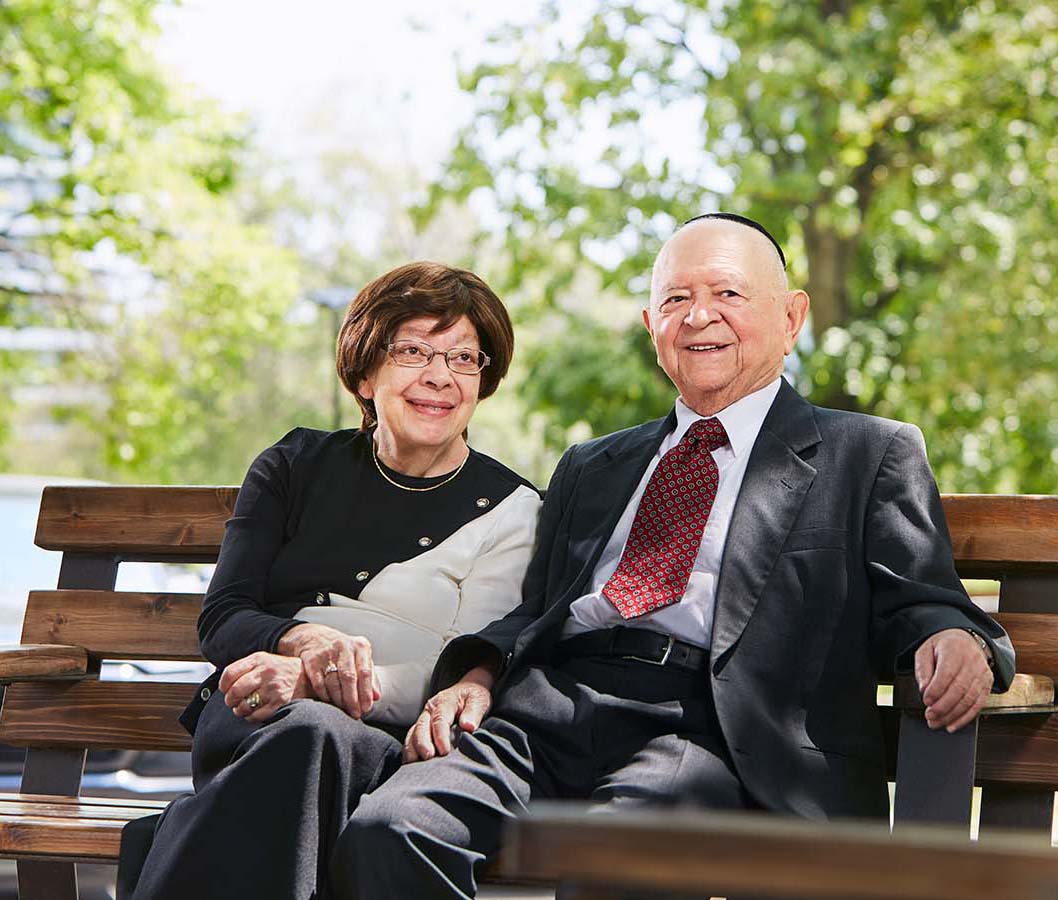
After living through the horrors of Buchenwald, Leib Wagschal is thankful for every moment with his 19 grandchildren and great-grandchildren and his wife Charlotte (pictured left). But the 90-year-old Holocaust survivor is even more grateful than usual. Leib became the first person at Sunnybrook – and one of the first in Canada – to benefit from the Sentinel Cerebral Protection System.
The Sentinel protects against stroke during an endovascular procedure, such as a TAVI. Its small dual filter is designed to capture and remove plaque or debris that could travel up to the brain. It is inserted using a catheter from the patient’s wrist artery and positioned with X-ray guidance. Once the TAVI is in place, the Sentinel is removed.
Leib was rushed to Sunnybrook after he collapsed while walking to synagogue. “I just dropped, in the middle of the road,” he says. Following a short stay in the hospital for his procedure, Leib was able to return home to his loving wife Charlotte.
A lifelong baker, Leib is thankful he is well enough to return to making challah and other pastries for his family – and for having the chance to make such a safe, happy life in Canada in the first place. “If somebody had come to me when I was 12 years old in Buchenwald, and told me that one day I would be married and have children, I would have thought it was impossible.” says Leib
An international trial testing the Sentinel’s effectiveness is underway. “We’ve also decided to study this ourselves and to use the devices in those at highest risk of stroke following a TAVI,” says Dr. Sam Radhakrishnan, medical director of the TAVI program. Patients with a history of stroke or significant calcium burden represent about 15 per cent of the TAVI patients treated at Sunnybrook.
Approximately 20 Sunnybrook patients with these indications have received a TAVI with the Sentinel since 2020 and like Lieb, all have had positive outcomes,





